By Resti Santiago

Mention “astrology” to scientists and, as if in a trance, they will automatically respond with the word “pseudoscience” to describe it. This apparently is neither new nor a local phenomenon. Serious researchers from different disciplines, such as Michel Gauquelin, a statistician, and Percy Seymour, Ph.D., an astrophysicist, encountered this kind of treatment from their colleagues when they began to apply their disciplines in studying astrology.
It is thus worthwhile to discuss what “science” and “pseudoscience” are and how astrology fits in with the definition of these words. Before we deal with astrology as a science, let’s deal first with the concept of pseudoscience. According to Wikipedia, pseudoscience comes from the Greek word “pseudo” and the Latin word “scientia.” “Pseudo” means false, while “scientia” is knowledge. The discipline of alchemy was the first to be branded as such in the 18th century.
With this definition, the first question that comes to mind is whether astrology, which has existed far longer than any of the modern sciences, is nothing but a falsehood. Isn’t astrology as systematic as any form of knowledge?
In this age, the answer would seem to be dependent on one’s bias, but this shouldn’t be so. Several criteria have been proposed to judge whether something is pseudoscience or not.
A Pseudo-problem
Larry Laudan, an epistemologist and philosopher of science, questioned the labeling altogether. Laudan asserts that the word “pseudoscience” only describes emotions, and doing so is itself not a scientific practice. As it deals with emotions, the word is liable to be abused or misused. He asserts that the exercise of demarcating science and “non-science” is actually a “pseudo-problem.” Practically speaking, it does not solve any problem.
How do other philosophers of science differentiate science from “non-science”? I will explore two of these, one is “falsifiability” as proposed by Karl Popper, and the other is using a more complex demarcation matrix that requires three elements, as proposed by Paul Thagard.
Popper on Falsifiability
Karl Popper wanted to do away with the traditional system of defining a science through the concept of verifiability. Verifiability is a theory’s ability to be proven correct through observation and empirical means. This is the most common criterion used to define a science.
Popper’s view is that it is easy to find connections that a theorist can utilize to prove whether his system is true or not. Hence, for something to be considered scientific, a stricter way is necessary. Pondering upon this issue, he came up with the concept of falsifiability.
Falsifiability is a theory’s ability to be proven true or false, specifically by its predictions. If a theory cannot make a prediction that can disprove it, then it is not a science. Simply put, seeing connections between what happened in the past and what the theory says is not enough. A theory must be able to predict, and such predictions must be clear, unambiguous and verifiable; and when the predictions do not, it should disprove the theory. Another philosopher of science has something to say against falsifiability.
I wonder how Popper considered the astrometeorological predictions of Johannes Kepler and Tycho Brahe. No one can accuse these scientists of faulty observation or sloppy recording. These scientists, who were also astrologers, raised the standard of observational science. Tycho Brahe even built a castle-observatory equipped with large instruments to observe the sky for astrological and astronomical purposes. Their predictions could have falsified astrology, but that was not the case. Kepler uttered “A most unfailing experience… by the conjunctions and aspects of the planets has instructed and compelled my unwilling belief.”
With falsifiability, what is now considered as soft sciences, like psychology, will fall into the category of pseudoscience. This brings us back again to the importance of Laudan’s statement: what has been achieved by such labeling? It would be far wiser to categorize different kinds of knowledge based on their limitations instead of labeling some of them as pseudo.
In the case of astrology, it has been attacked by those who have never studied the subject long enough to know its details and variations. Not knowing enough, these critics believe that astrology is useless and is a “stupid” pseudoscience. This is a case of how the word has been abused.
Karl Popper did not intend to judge pseudosciences as useless. In his paper “Science: Conjectures and Refutations,” Popper stated that the other way could, in fact, to be true: that a science often errs and that a pseudoscience may actually stumble upon the truth. Stating that astrology is useless is more of an emotional statement because it is based on ignorance about the history and true nature of astrology.
There are many ways of looking at astrology as a discipline. For example, in the history of the development of thought, it would be totally wrong to say that astrology is useless.
The UNESCO, through its Memory of the World Program, has acknowledged the importance of astrologers like al-Biruni when they included his books on astrology and mathematics among the world’s important cultural heritage.
Psychology has its place in the modern world, yet Popper branded it a pseudoscience in his time. If usefulness is a way out of the category, which psychology seems to have successfully attained, it should be worthwhile noting that the best of what modern astrology has to offer was the combination of Depth Psychology with Astrology. Astrologers who were followers of Jung were able to successfully graft astrology with depth psychology. This shouldn’t be surprising because Carl Jung himself practiced astrology.
Barking Up the Wrong Tree
According to Popper’s definition, astrology is a pseudoscience, but by applying his definition, we can see where he went amiss. Modern astrology, which is the only kind of astrology that Popper encountered, and the only one popular in the greater part of the 20th century, was not meant to predict.
It is understandable why psychology and astrology would be labeled together as pseudosciences because modern astrology is very much like psychology. Modern astrology is based on character analysis in the same way that psychology is. So, astrology as a form of psychology is not useless. Psychological astrology is well respected in Europe and is certainly not for the stupid.
Popper considers making predictions to be the means to elevate a theory to scientific status. I also believe that this is so. The flaw of his reasoning when he judged astrology was his ignorance of what astrology really is, and this way of thinking has been supported by his followers.
What Popper presumably tested were the predictions of horoscope writers. Horoscopes are columns based on predictions for sun signs that became popular during the early part of the 20th century when he was just a young man.
Astrology’s history dates back to more than 5,000 years. When he referred to astrology in his paper, he talked about the “daily confirmations” that astrologers get in their practice. Real astrologers don’t predict what is to happen in a person’s life on a day-to-day basis, even if they can. What he described was sun sign or pop astrology. Daily horoscopes are based on astrology, but it is not the real thing. His research into astrology certainly did not include the predictive type and other branches of astrology.
I have been exploring the predictive aspects of astrology, and I have identified three applications of astrology that can make predictions the public can easily understand: these are financial astrology, astro-meteorology, and election forecasting. The reliability of these branches of astrology increases with a shift from modern astrology to traditional or medieval astrology. In fact, medieval astrology expert Robert Zoller says medieval astrology is a form of predictive astrology.
Thagard’s Argument
Paul Thagard, another philosopher of science, also tackled astrology in his writings. His opinion is interesting because he refuted all arguments against astrology, particularly Popper’s argument. He even lambasted the arguments written down by 186 scientists who, in 1976, issued the article “Objections to Astrology.”
For Thagard, astrology is verifiable, and he cited the work of Michel Gauquelin as an attempt towards this direction. He thinks that falsification only occurs when a better theory comes along and that when a theory is falsified, it is a matter of finding another theory to replace it. In principle, every theory is like that; hence, astrology cannot be considered a pseudoscience because of falsifiability.
However, Thagard believes astrology is a pseudoscience because it is unprogressive. He believed that since the time of Ptolemy (c.90 – c.168), astrology did not improve its theoretical prowess and predictive abilities. Again the flaw in this argument is that he did not fully understand the principle and history of astrology. Perhaps, he did not encounter Arabic, Persian, Medieval and even Jungian (20th century) astrology.
Astrology as “Scientia”
The word “science” has undergone revisions but, as with everything else, it is always good to look at the root of the word. It is up to future historians whether a limiting definition of the word imposed by 20th-century thought should be retained.
Astrology is a science if we use its original meaning. “Science” comes from the Latin word “scientia.” “Scientia,” according to Wikipedia, is a systematic or logical enterprise that builds and organizes knowledge in the form of testable explanations and predictions about the universe. I will elaborate on this next year.
In the meantime, here is one thing to think about: the cornerstone upon which modern science rests was founded by the Greek philosopher Aristotle. When the works of Aristotle and other Greek philosophers were translated back into Latin during the Middle Ages, the so-called Dark Ages in Europe ended, and knowledge flourished once again, which led to the Renaissance. Aristotle was brought back to the West when the astrological works of Abu Ma’shar, a Persian astrologer and scientist, were translated into Latin. Abu Ma’shar used Aristotelian logic in explaining astrology.
Astrology Lives
Having said all of these, there is another important point I want to make: it is not because of its ability to predict that made astrology acceptable throughout history in various cultural, religious and intellectual settings. Astrology remains relevant today, as it has always been, because of its ability to show that, instead of randomness, there is a Divine Law that governs our lives, and instead of chaos, there is Order in the universe.
From Medieval Astro-clock 2013

